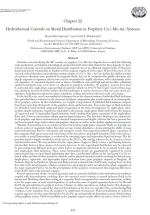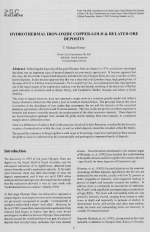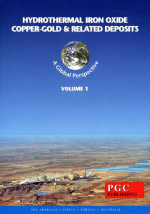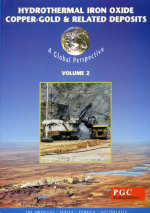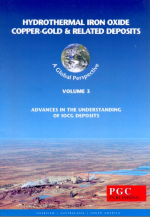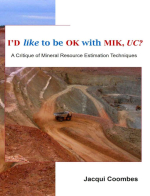Abstract: Following the discovery of the giant Olympic Dam ore deposit in 1975, a realisation developed that there was an important class of mineral deposits not previously appreciated. It became apparent that this class, the Iron Oxide Copper-Gold deposits, included not only Olympic Dam, but also a number of other known deposits. It also became apparent that this was a class that could produce large, high grade prizes, of the order of 0.25 to 1 billion tonnes of around +1% Cu and 0.5 g/t Au. As a consequence this class has been one of the major targets of the exploration industry over the last decade, resulting in the discovery of further giant orebodies in Australia such as Ernest Henry, and Candelaria, Salobo, Sossego and others in South America.
This class of deposit however, does not represent a single style or a common genetic model, but rather a family of loosely related ores that share a pool of common characteristics. The principal feature they have in common is the abundance of iron oxides that accompany the ore and the intensity of the associated alteration, particularly albitisation and Fe metasomatism. The iron oxides are present as either magnetite or hematite and almost invariably precede the emplacement of the other economic minerals. These deposits are found throughout geologic time, around the globe and in settings from intra-cratonic, to continental margins above subduction zones.
There is a differences of opinion both on the processes involved in their formation, matched by the diversity in styles of mineralisation within the class, as well as which deposits should be included within the family.
The aim of this volume is to bring together a wide range of knowledge, experience and opinion from around the globe to assist in understanding this economically and geologically important family of deposits.


